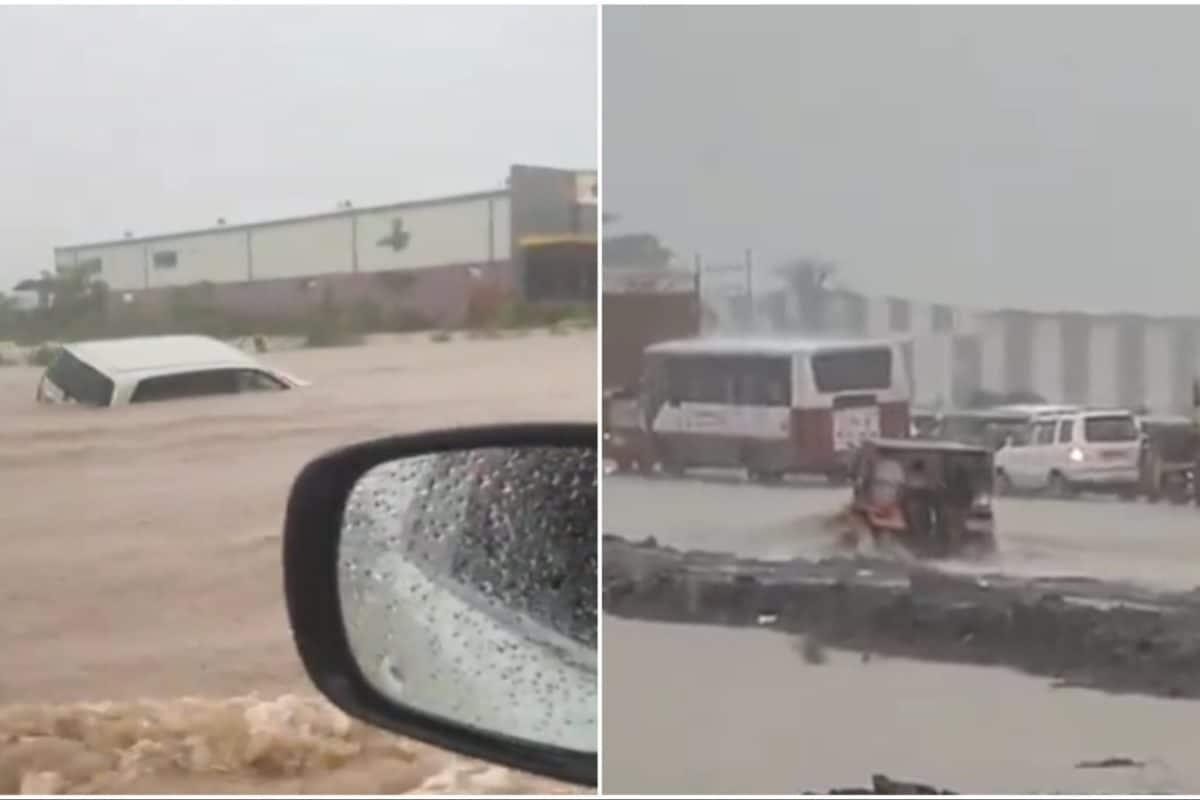

Heavy rainfall has battered Maharashtra, India, causing significant disruptions to daily life and infrastructure. The deluge has resulted in the flooding of highways and railway lines, leading to traffic congestion, cancellation of trains, and general chaos for commuters in Mumbai and other parts of the state. In some areas, the floodwaters have been so severe that cars have been swept away, underscoring the intensity of the downpour.
Mumbai, the financial capital of India, has been particularly hard hit. More than 300 mm of rain lashed the city within six hours, leading to widespread waterlogging. Commuters have been forced to wade through knee-deep water, and many vehicles have been partially submerged. The Eastern and Western Express highways, crucial arteries for the city, have experienced severe traffic jams.
The impact on the railway network has been substantial. Railway authorities have been compelled to cancel several long-distance trains, and suburban passenger trains, a vital mode of transport for millions, have been brought to a standstill on flooded tracks. Chief Minister Eknath Shinde has urged residents to stay indoors unless absolutely necessary, acknowledging the severe traffic congestion on both roads and rail lines.
In addition to transportation disruptions, the heavy rains have prompted the closure of schools and colleges as a precautionary measure. Authorities are concerned about the safety of students and staff, especially with forecasts predicting further heavy showers and a high tide in the coastal city. The India Meteorological Department (IMD) has issued alerts, including a red alert for Mumbai and surrounding regions, indicating the likelihood of continued heavy to very heavy rainfall.
The situation is further compounded by overflowing rivers, which have affected over two million people in other parts of the country. In the northeastern state of Assam, the Kaziranga National Park, home to the endangered one-horned rhinoceros, has been inundated, leading to the drowning of several animals.
Incidents of lightning strikes have also been reported, with fatalities recorded in Bihar state. These incidents highlight the multiple dangers posed by the monsoon season, which, while providing relief from the summer heat, often brings widespread flooding and related calamities.
The Brihanmumbai Municipal Corporation (BMC) has appealed to citizens to avoid venturing out unless it is urgent. Emergency services are on high alert across the state, and relief measures are being coordinated to assist those affected by the floods. The state government is working with district collectors and disaster management teams to provide support and assistance to those in need.
This year, four of the seven lakes that supply water to Mumbai have already reached their full capacity and are overflowing. While this bodes well for the city's water supply, it also adds to the challenges of managing the excess water during periods of heavy rainfall. The average rainfall recorded in Mumbai over a 24-hour period has been substantial, with the eastern and western suburbs receiving significant amounts of rain.